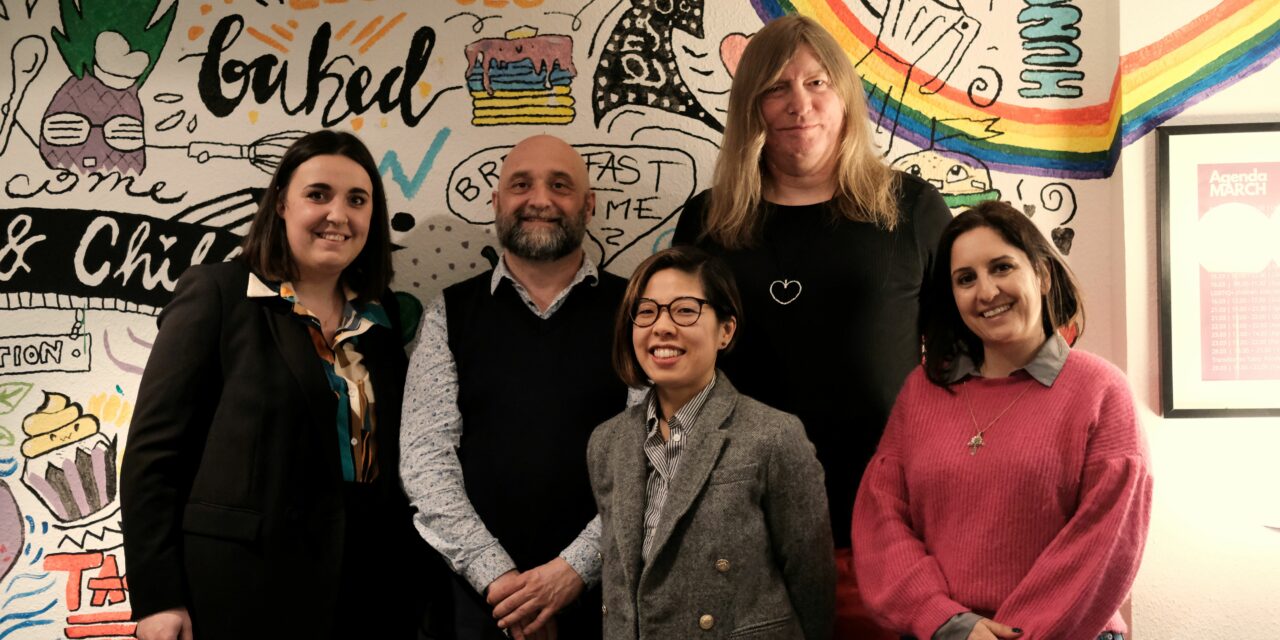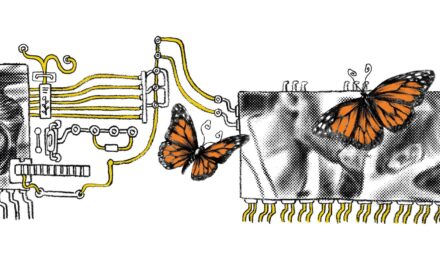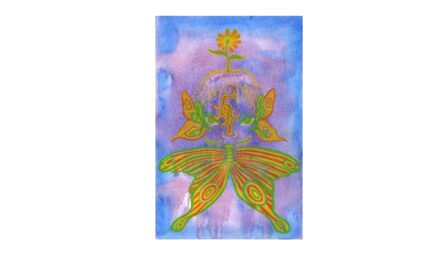Navigating Late Coming Out
In the best of circumstances, coming out is a difficult endeavour. Doing so later in life, when one is already established with a career, long-standing social connections, possibly a marriage, and children, can seem insurmountable.
“One of the things that held me back for so long was the feeling that coming out was for the young,” says Mia, who came out in June 2023 when she was 42. “I thought I was too old to do anything different with my life. ‘That ship has sailed,’ I often told myself. I couldn’t see the point of risking everything I had built over my life until then.”
Annette echoes this sentiment. “I was 51 when I had my very first coming out as a woman. Although I could have already come out a long time before, I had always been afraid of what would happen, the worst case being a social downfall due to the reactions of my family, friends, and work colleagues.” But, she adds, the risk could not prevent her from becoming who she wanted to be. “In the end, it was necessary to come out. I was so sure about it then because I felt it was a matter of life and death. So, I was ready to give up everything else in life just to let my dream and destiny come true!”
Community is Key
In this context, community support becomes essential. The Centre LGBTIQ+ CIGALE provides a dedicated group for those facing the unique challenges of late coming out: the Lilies. Meeting every third Friday of the month, the group offers a space for genuine, supportive life experiences.
Julie Mocquard, coordinator of the Lilies and Diversity Inclusion Community Empowerment groups at CIGALE, underscores the group’s role in building confidence and acceptance: “Lilies aims to be a safe space for exploration, where acceptance is key, aiming to foster friendships beyond group meetings to combat loneliness and depression, restoring assurance in each individual.” She says she feels honoured to be the coordinator of a group that resonates with her humanistic values” and adds that the Lilies will always remain a space “where anyone feeling vulnerable can build confidence to be fully themselves and, in turn, help others do the same.”
Transitioning and Empowerment
As the group approaches its one-year anniversary, members who have been out longer serve as inspirations for those at earlier stages of their journeys. Stella Marzetta, who came out at 39, embraces her role in empowering others: “My mission resonates deeply. I’m committed to helping people shine bright. I’m committed to guiding them toward their own transformative journeys, nurturing courage, and illuminating the path toward self-actualization. I’ve embraced my vocation as a life and business coach, championing the cause of courage daily. Empowering individuals to confront their fears, actualise their ambitions, and sculpt a life of fulfilment really embodies my purpose.”
A sentiment which resonates with Mia, for whom, the Lilies’ meetings were a stepping stone towards finding her path. “I won’t say Lilies saved my life in a literal sense, but when I first came to a meeting, I had just accepted myself and was terrified of the consequences of coming out. I was a puddle of anxiety. A few hours later, on the bus back home, I felt a renewed sense of hope, that I wasn’t alone and things could turn out alright.” She goes on to explain that “When we are all together, it just becomes natural”… “When you see someone who is struggling coming through that door, you see yourself, some time back, and the need to help them, to make their path a little easier than yours was, is overwhelming. And the urge to help is also a kind of self-nurturing. By helping others through showing them that things can turn out alright, you are also helping yourself realise how far you have come in your own journey.” Mia says she feels “a debt of gratitude towards the community” and hopes to repay it by helping those who follow in her footsteps.
Challenges and Societal Pressures: A Question of Time
Those coming out late in age are often asked: why only now? Didn’t you know? The ‘late coming’ may in part be attributable to so-called comphet (compulsory heterosexuality), the enormous social pressure to follow the heteronormative path through life. Society has changed a great deal in the last 30 years, so happily young queer folks hopefully won’t suffer the same oppressive lack of awareness, but for older generations the weight of this pressure is still a burden.
Mia recalls the feeling as “a kind of mental fog, caused by societal pressure and expectations, and our own internalised queerphobia, that prevents us from seeing who we are. It is incredibly difficult to understand yourself clearly when society’s expectations of conformity and what ‘normal behaviour’ is depend on you not understanding yourself.”
There is also a sense that you cannot be ready too early. For Stella, “if this revelation had occurred years earlier, it would have been different. I was different. My former self, shackled by fear of societal judgement, strongly believed conformity to be the sole avenue to acceptance. In an environment characterised by rigidity and homogeneity, deviation was discouraged, potentially resulting in isolation. Amidst such circumstances, acknowledging and expressing such a profound truth would have been arduous, even for myself.”
And even when someone is ready to overcome societal pressure, the barriers will still be there. Annette says that she has faced “tons of challenges, such as coming out everywhere, finding and following all the necessary therapies and medical treatments, legal name and gender recognition, and finally my sexual reassignment surgery.”
To Mia, “there is no doubt that there are still a lot of walls, whether societal or legal, that can make it hard for people to summon the courage to be themselves. And the lack of visibility and representation hurts a lot. We need to identify with others in order to see ourselves more clearly. The rising queerphobia that we are witnessing in some parts of Western Europe and the United States will definitely make this process harder for so many people. And in this context, groups like the Lilies become even more important. Being with like-minded people, who are facing or have faced similar challenges, is validating and empowering.”
“Since 2020, I’ve deliberately immersed myself in diverse social circles, embracing open-minded individuals with contrasting lifestyles.” Stella adds. “Relocating to Luxembourg, a more accepting environment compared to Italy, further encouraged introspection regarding my desires. I’ve started contemplating whether conventional notions of happiness truly resonate with me or if alternative paths exist, spurred by the myriad of experiences of people around me.”
“My advice to others is uncomplicated: seek solace in like-minded companions and nurture courage through incremental acts of defiance. Try to practise day by day, little step after little step, how to go out of your comfort zone. Gradually, fear of external judgement diminishes, paving the way for a life aligned with one’s aspirations.”
The Kindness from Everyone Around You:
For all the fears and doubts, one thing that members of the Lilies realise is that the people they have come out to are generally far more accepting and supportive than they would have initially expected.
“What surprised me the most was the kindness that most people have had towards me,” says Mia, who has come out to the closest family and friends. “I know it isn’t the case for everyone, but I have had nothing but support and acceptance. Even the people who had held me in their arms as a newborn, and had known me by a different name and with a different gender, have embraced me fully. The risk and fear are there for a reason and they are legitimate, but oftentimes, people turn out to be much kinder than what you’d expect them to be.”
For Stella, “coming out, once reciprocated feelings were confirmed, felt natural, almost inevitable. I am lucky to be surrounded by individuals who love me for who I am. I received unwavering support. Ironically, my transition to vegetarianism two years prior elicited more astonishment.” Annette wraps up enthusiastically. “Now, when I think back, I must say that it was all worth it. I have never been so happy in my life! My name is Annette and I am a woman, finally! Every day when I wake up, I think ‘this is me and I’m living as myself!”
Photo: @yumeng_foto





